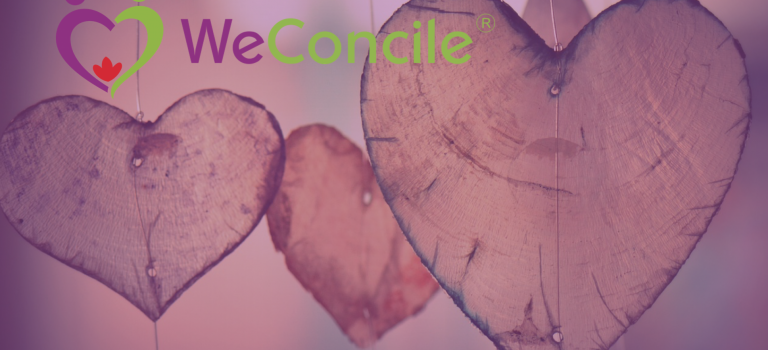
Relationship Help for Reactivity
We’ve all lost our shit. Yelled, screamed, slammed doors, or simply shut down, mute and immobile. Frozen in fear and uncertainty, or trapped in placating to keep the peace.

We’ve all lost our shit. Yelled, screamed, slammed doors, or simply shut down, mute and immobile. Frozen in fear and uncertainty, or trapped in placating to keep the peace.

Getting upset is part of every relationship. It is important to learn how to get through these upset times, especially until we develop the skills that allow us to resolve our conflict quickly and easily.

My name is Jennifer Lehr, LMFT and I am the founder of WeConcile. I regularly share my experience and story, my knowledge, my struggles, and my vulnerabilities in my writing. I also share my expertise.

The Journey to a Healthy Relationship After years of struggle and a slow spiral into death, at the age of 46, I gave up on my first marriage. From those ashes of grief, new life emerged. I wrote a relationship education program. Would it help me in my next true love relationship? Could I create […]

And how that causes relationship problems I was listening to a YouTube by Sadhguru the other day and he asked, “What are you doing with your one precious life?” It is a great question. Sometimes we get stuck in something, whether a job, a relationship or a mindset or attitude. We may have given up […]

In my family, love was hidden under other agendas. Learning how to truly love (both self and others) has been a life path for me.

I remember as a kid being upset and walking away from our home. Thoughts swirled around in my head. Never get married, never have kids. Never get married, never have kids. Over and over like a mantra. I don’t remember the incident, but ours was a violent household where fighting was frequent, and empathy rare. […]

Reaching Our Goals For A Relationship How does having a significant illness relate to being in a relationship that doesn’t work? How do we take that understanding and apply it to improve our relationships? How do we reach our goals for a relationship? In 2016, when I was struggling with Lyme disease, in desperation, I […]

For some of us, saying no is easy. And for others, it is something that needs to be developed.

We can connect with the blessings of our lives and make our lives and relationships even more beautiful.

Courage over comfort. That is the key. The primary vehicle for change in a relationship really is developing a better relationship with our own feelings and unpacking why we feel what we feel when we are having that feeling.

Over the years of working both as a therapist and a couples’ therapist I have come to believe that something more is needed to help all of us with our relationships. Many of us just don’t have the skills we need. Therapy has limitations due to its cost, and many therapists, though effective with individuals, don’t have the specialized training needed to be effective when working with couples. The time constraints of people’s busy lives, and the stigma that therapy has for some also inhibit people seeking help.

Can you set a boundary (say no) to somebody when you are not angry? Often, we can set a boundary if we are angry, but cannot if we are not angry.

Lets look at couple therapy, which is a pretty complex process. As a client in couples therapy, we must learn enough about ourselves (among other things) so that we can untangle a bunch of behavior that simply does not get us what we want: an accessible and responsive relationship. We supply the courage and tenacity on the road to mastery of this challenge, but we need more than motivation, creativity and desire for this purpose. We also need a map.

“The more quickly either person goes from disappointment or hurt to anger, defensiveness, or emotional withdrawal and remains stuck there, the less that person is capable of having a relationship and the more the other person will have to walk on eggshells.” – Mark Goulston

George had been very upset about the actions of an ex friend. Susan could feel his pain and asked him if there was anything that she could do to make him feel better. George replied, “I could think of something”. Susan retorted, “I wasn’t talking about sex”. George responded, “So what’s new?”

How do we change the direction of our lives? Despite our histories, why do some people create fulfilling lives for themselves while others do not? As a therapist, and as a person who has made her life about self-transformation and then later, the transformation of others, this is easy to see. But for many people, especially those who do not know much about “therapy,” and the process it entails, this is more of a mystery.

Relationships are about intimacy and connection. Telling the truth allows us more connection, trust and intimacy in relationships.